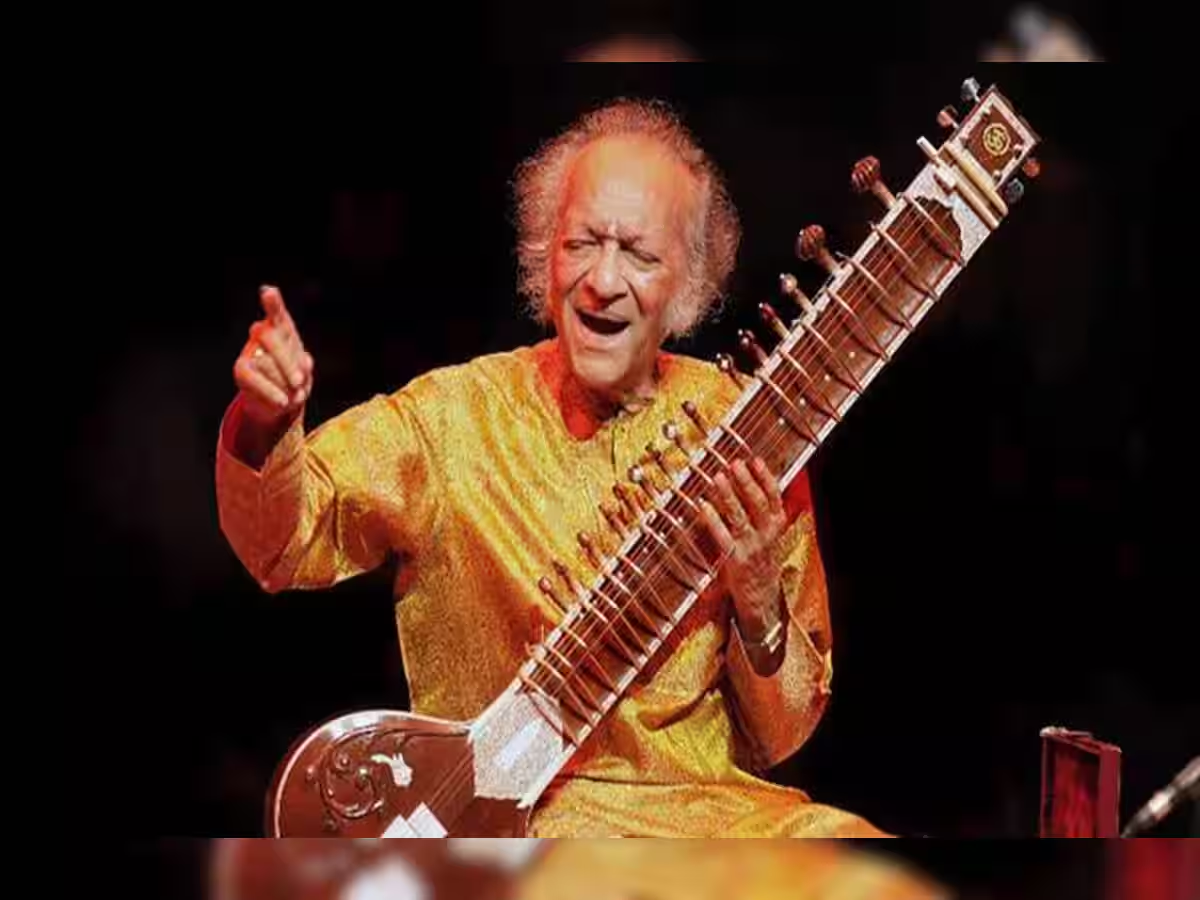Uttar Pradesh
Bharat Ratna Pandit Ravi Shankar Birth Anniversary
- 09 Apr 2025
- 4 min read
Why in News?
7th April 2025, marks the 103rd birth anniversary of sitar player and composer Pandit Ravi Shankar.
Key Points
- About Pandit Ravi Shankar:
- Pandit Ravi Shankar, born on 7th April 1920 in Varanasi , was a great sitarist and composer of Indian classical music .
- His original name was Ravindra Shankar Chowdhury and he was the seventh son of his father Shyam Shankar Chowdhury and mother Hemangini Devi.
- At the age of 18, he started learning sitar and took initiation from Ustad Allauddin Khan of Maihar.
- He recomposed the famous song "Saare Jahan Se Achcha" at the age of 25.
- He served as the Music Director of All India Radio in New Delhi from the year 1949 to 1956.
- Subsequently, in the 1960s he taught and performed Indian classical music with violinists Yehudi Menuhin and George Harrison, helping to popularise it in the Western world.
- Pandit Ravi Shankar introduced Indian classical music to the western world.
- The Beatles' George Harrison described him as the 'Godfather of World Music'.
- He was also a nominated member of the Rajya Sabha from 1986 to 1992.
- He died on December 11, 2012 at the age of 92.
- Honours and Awards
- He was awarded the country's highest civilian honour, Bharat Ratna, in 1999. Apart from this, he received many honours and awards, which include:
- UNESCO Goodwill Ambassador (1999): Appointed for cultural contributions.
- Padma Bhushan (1967): India's third highest civilian award.
- Padma Vibhushan (1981): Second highest civilian award for exceptional service.
- Kalidas Samman (1986): Madhya Pradesh's premier award for excellence in Indian classical music.
- Sangeet Natak Akademi Award (1987): A mark of excellence in the field of music in India.
- Grammy Awards (four times): Honoured in various categories, including a posthumous Lifetime Achievement Award in 2013.
- He was awarded the country's highest civilian honour, Bharat Ratna, in 1999. Apart from this, he received many honours and awards, which include:
Indian Classical Music
- Introduction:
- Classical Indian music is a complex and ancient form of music with its roots in the Vedas, the oldest texts of Hinduism, dating back to around 1500 BCE.
- It is divided into two main traditions: Hindustani music (prevalent in North India) and Carnatic music (popular in South India).
- Historical Background:
- Indian classical music traces its origins to ancient texts such as the Samaveda, which shows its deep historical background and connection to Indian traditions.
- Importance:
- Preserving the authenticity of the Guru-Shishya tradition (teacher-disciple tradition) in classical music has ensured the transfer of knowledge and skills from one generation to the next.
- Classical music follows a set of rules and conventions (such as the raga system, which has been passed down for generations) that have ensured the preservation of India's musical heritage.
- Classical music plays a role in uniting people from diverse backgrounds by acting as a common cultural thread. It has a role in promoting a sense of national unity through reducing regional, linguistic and religious barriers.
- Classical music includes a combination of various regional styles and instruments, which reflects the cultural diversity of India. This inclusiveness promotes harmony and coordination among different communities.





